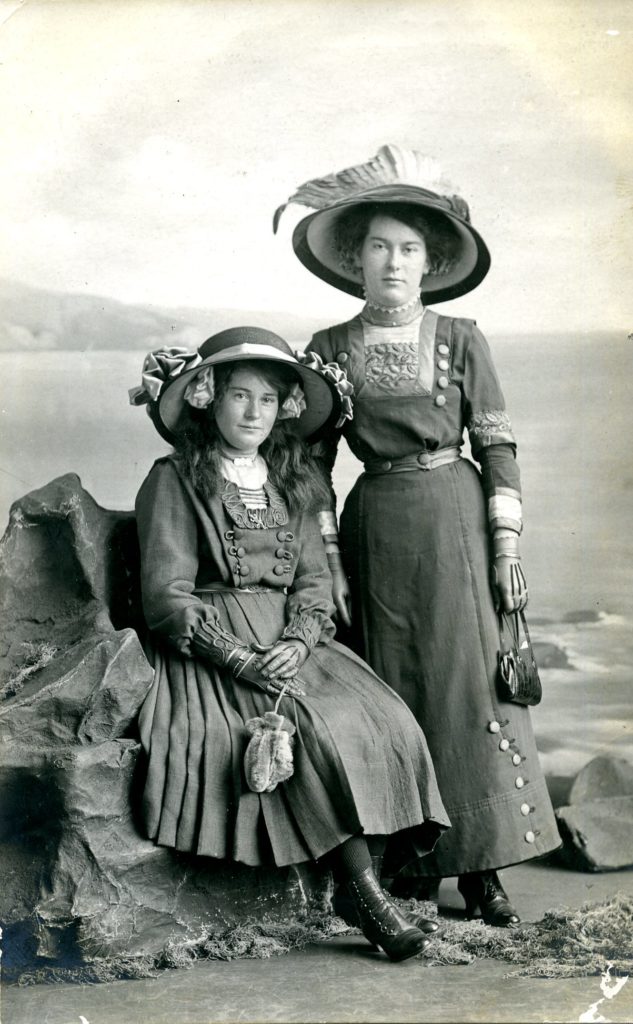
Family historians are frequent users of public libraries – whether to access e-resources such as Ancestry Library Edition, to use onsite collections and resources, or to draw on the expertise of librarians.
In collaboration with the Local Studies Special Interest Group and in partnership with the University of Tasmania, Public Libraries Victoria hosted an online seminar on the 20 October 2021. Speakers included Dr Naomi Parry, Dr Imogen Wegman and Linda Hunt, from the University of Tasmania, all with impressive resumes.
The seminar covered key family history skills and challenges, what motivates Australia’s family historians, and how we can support them to do family history well.
PLV CEO Angela Savage hosted the session. 198 people attended.
The session was recorded. A link will be sent out to everyone who registered to attend to access.
There is a lot of interest in hosting the ‘taster’ sessions in libraries, a choice of four topics – in 2022. Where does the Story Start? Putting your ancestors in context, Bring in a family heirloom and Families in history.
Points of interest:
- Every single person comes from a family!
- Family historians are deeply connected to their family history. They are passionate!
- Recording family history has been a long-time practice but in Australia the upheaval came with the 1988 Bicentenary.
- A popular leisure activity has happened alongside the increased access to tertiary education and the public investment in providing resources, digitisation, indexing and cataloguing enhancing and re-interpreting and presenting data through projects such as the Digital Panopticon: tracing London convicts in Britain & Australia, 1780-1925, 2017 and books such as Lost Relations: fortunes of my family in Australia’s Golden Age by Graeme Davison, 2015
- Television shows also inspire people but there is an expectation it comes easy and instant.
- Students studying the UTAS Family History diploma remotely are aged between 55 and 74.
- They study to keep their minds active.
- Family historians are motivated by many different things and they are not necessarily the stereotypical hobbyist, middle aged and retired. This ignores the breadth of skills and knowledge they have.
- There is a particular passion from descendants of convicts.
- Ancestry – one of the big four genealogy giants has a USA, UK, Europe bias in its records.
- Awareness that many local studies collections are “white man” collections but this is slowly changing to reflect a wider community.
- Oral history fills in the gaps between records.
- Asking people to tell their story is a privilege.
- So easy to record histories with technology at hand – even remotely.
- Recognition of non-typical families, challenges the myths of what family is but still very important (adoptees, step-families, queer families).
- Family historians are keen to collaborate – especially on social media
- Some “discoveries” can shake up people. Encourage an exploration of other records.
Where do Librarians and Libraries play a role
- Libraries have a role to actively add diversity to their collections.
- Awareness that family historians come in all “shapes and sizes” with various skills and motivations
- Provide printed tip sheets and blank charts (Family Group sheets and pedigree charts are good for beginners)
- Know the key resources to point people to and include these on your library website (or refer to larger organisations such as SLV)
- Start a conversation with a family historian. Why are they in the library today? Are they beginners or are they trying to break down a brick wall? Can you help?
- A ten-minute one-on-one to teach the skills for them to do it themselves. Some people need more help than others. Do they need help with digital skills? (e.g. social media, how to take screen shots, basic manipulation of images, open and save a word document, how to do a google search, how to search on Ancestry and others).
- Talk with a patron about their family history. They may not have anyone else in their daily life who is interested.
- Set up an appointment time to come back when it is quieter. You can help them clarify what they are wanting to achieve.
- Promote free and accessible genealogy e-resources the library provides (do not assume that the patron may know).
- Promote any upcoming relevant programs that may be of interest.
- Encourage context. Push the wider collection (e.g. history of a place or time period) and genealogy “how to” books (e.g. Researching in Ireland) for expert advice.
- Learn (and use) a resource you have not used before.
- Refer patrons to colleagues with diverse skills and knowledge.
- Refer patrons to a library or local family history group.
- Incorporate the needs of family historians in library programming.
I was taken with the description of the UTAS Diploma of Family History course in which the students – Research, Organise, Create, Communicate and Use digital tools and technologies. I think these are good concepts to keep in mind when thinking about programming for family history.
Liz Pidgeon, Yarra Plenty Regional Library; co-convenor, Local Studies Special Interest Group.
Image: Thomas Sisters of Mernda, Vic., ca 1916. Fay Thomas Collection, FTP00515 Yarra Plenty Regional Library

Hello. How can I join the Local Studies special interest group? I work for Casey Cardinia Libraries, and am studying the Graduate Diploma of Local, Family and Applied History at the University of New England.
Hi Kim, you can join the SIG simply by subscribing to receive posts, which will include information on meeting times and dates. You need to have a member portal login to subscribe – sign up if you don’t already have one here: https://www.plv.org.au/member-portal/
You can also contact the convenor. See here (you need to be logged in to access): https://www.plv.org.au/special-interest-groups/